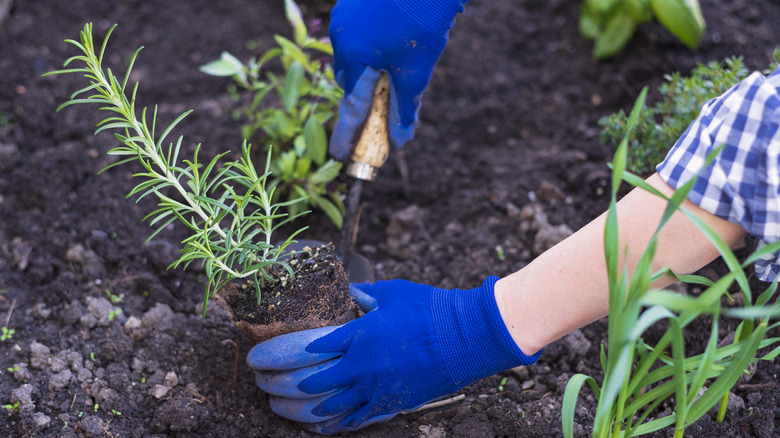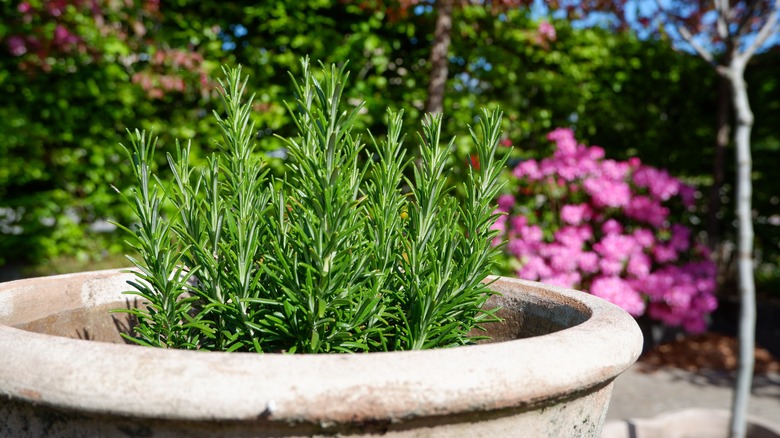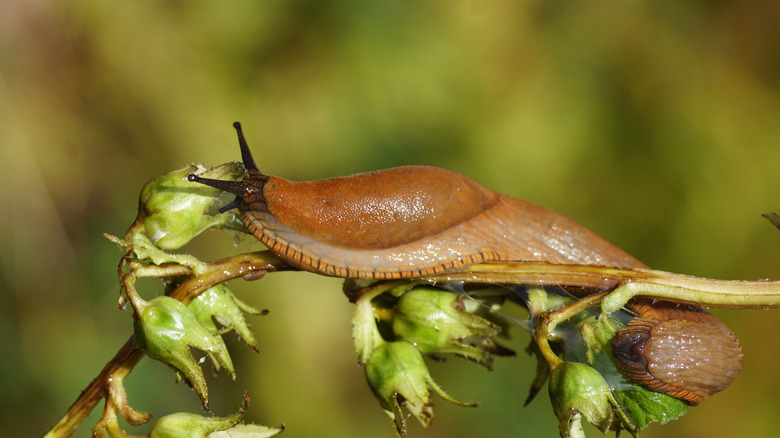The Most Ideal Time Of Year To Plant Pest-Repelling Rosemary In Your Garden
Rosemary is a multi-faceted plant that serves as a stunning shrub, tasty spice, and natural pest repellent, making it a fantastic addition to any garden. But when is the best time to plant it to ensure that you reap these benefits and give your rosemary the greatest chance at success?
Rosemary shrubs do best when they are planted in spring, specifically when the soil in the area begins to soften and warm after a cold winter. They can be planted at any point during the warmth of spring and even in the dog days of summer, but these rosemary plants require strict watering schedules to ensure their roots are established underneath the surface. These hardy shrubs can grow up to six feet in height and five feet wide when maintained properly, so it's important to give a young plant room to grow when choosing a spot in your garden to plant it.
Why warm weather is best
Warm weather is ideal for rosemary shrubs to anchor and establish their roots. Scientifically known as Salvia rosmarinus, rosemary is native to the warm coastline of the Mediterranean Sea. There, these shrubs can grow up to 10 feet tall.
While not exactly the ideal conditions of the Mediterranean coast, many areas in the United States mimic its weather patterns. UDSA hardiness zones 7 and warmer are perfect for rosemary. In the United States, this includes the west coast, southern states, and the majority of the east coast. These areas allow rosemary to grow as perennial evergreen shrubs, meaning that they are dormant in colder months and grow in the spring and summer. Even if you live in a state that isn't best suited for growing rosemary outdoors year-round, the plant also does well when potted. Consider planting your rosemary shrub in a transportable container that can be placed outside during warmer months and inside once the brisk weather rolls in.
How it benefits your garden
As stated previously, rosemary is an extremely well-rounded and helpful plant to grow for many reasons. It not only makes a wonderful addition to a meal when harvested, but the shrub itself is highly beneficial to the other plants in your garden. For one, it serves as a fantastic, natural way to invite pollinators to your yard. Rosemary shrubs grow blooming flowers in the warm temperatures of spring and summer, attracting bees and birds to stop for a visit.
Arguably an even more crucial characteristic, rosemary is also a natural pest deterrent. Its strong, woody scent is both welcomed and admired by humans, but common garden pests like beetles, slugs, and mosquitoes despise rosemary. To make the most of your versatile rosemary plant, make sure to plant it when it's warm, give it some space to grow, and position it near other plants that may be susceptible to uninvited garden moochers.


